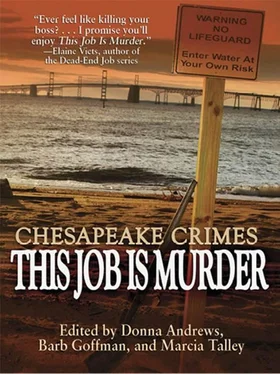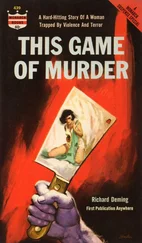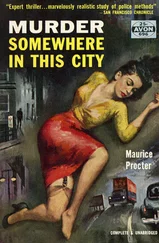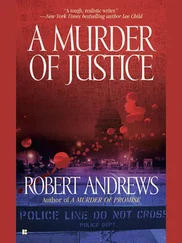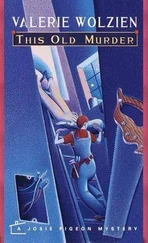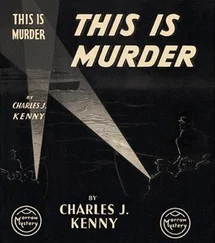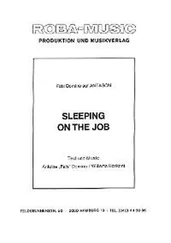When I got to Dillard Hall, George still sat in his red leather gentleman’s chair, his head resting on a matching walnut flat-top desk. Blood spatters covered the first-edition hardcover books that lined the wall next to the palladian window; bits of brain clung to the wicker chair by a shelf of academic journals. Fragments of his skull lay scattered under the lowboy behind his desk; and even his antique ceiling lamp had caught clumps of blood-matted hair. Whoever did this to George really meant business.
“Steve, let us through!”
“We have a right to be here.”
“Out of our way!”
I turned to find the entire faculty of the Business Department gathered outside George’s office. Eggheads, the whole lot of them. I didn’t know how Annette stood it. “We’re PhDs; that means we’re smart doctors, not rich ones,” they liked to say. Then they’d laugh, as if being poor made them seem smarter to anyone. They lined up behind the yellow police tape that separated George’s office from onlookers. Some had come to gawk; others just to make sure.
“Murder. It’s definitely murder,” Professor Calibri proclaimed as I scraped what was probably a part of George’s temporal lobe off the ottoman in front of his button-tufted wing accent chair. Master of the obvious, that guy. Calibri was smart enough to have a PhD in something I couldn’t spell, but too stupid to realize that he was a prime suspect. They all were. What George had planned for them was enough to drive any one of them to murder.
“The way I see it is this,” Calibri continued. “George had alienated many of his colleagues in the short time he was here. One of them must have exacted their revenge for his perfidiousness.”
Thanks for that insight, whatever it means.
The faculty crowded outside the door, each espousing his or her theory about what had happened in George’s office. The fact that they had no training in criminal investigation seemed beside the point.
“You know, Steve,” Sylvia Jones began as my team continued working the crime scene.
“ It’s Chief, ” I wanted to say. I gritted my teeth. God help me if I ever called them anything but “Professor” or “Doctor.”
“Yes, Dr. Jones,” I said, not turning to look at her, hoping that would tell her I wasn’t interested in hearing the rest.
“I think that whoever did this really hated George. I mean, look at this mess!”
More of the obvious.
“He had it coming! Everyone knows what he was doing here,” Professor Mancini chimed in.
“Yes.”
“That’s for sure.”
“Son of a bitch.”
“The very idea!” came the chorus of responses from the other faculty.
They were right about one thing. What George was doing was unheard of in academia. Many considered it sacrilege, a broken promise, a giant step backward for education. On the evening of his murder, George Lewis was putting the final touches on his plan to dissolve tenure in the Business Department and convert the entire curriculum into a high-volume, certificate-granting program.
Gary Brewster couldn’t keep the disdain out of his voice as he described his future at Hathaway College. “Can you believe it? Asking us, PhDs, to teach non-degree-seeking students! Who cares how much revenue it would generate? Tourism and Retail Management aren’t even real majors!”
“You don’t need college to do any of those jobs,” Doug Mancini complained.
“That’s just the point; we weren’t going to be part of the real college anymore!” Herb Schwartz reminded him.
“I didn’t go to school for nine extra years to teach future travel agents!” Marcia Paulson snorted and stormed away.
“He was even going to have us teaching online. How do you teach students if they aren’t in front of you?” Thomas wondered.
It went on, but I stopped noting who said what. As far as I was concerned, they were all saying the same thing: every one of them had a reason to want George gone.
“Some of us would be going part-time! I haven’t done that since I was a visiting professor! What nerve!” someone else piped up.
I shook my head and kept working.
“It’s not like we’re paid that much; guaranteed lifetime employment is so little to give us in exchange for all that we do,” the same voice complained.
There it was. “All that we do.” The Arts and Sciences faculty, long disgruntled at the significantly higher salaries that went to the Business faculty, always complained that they didn’t do enough to warrant those salaries. Their research and scholarship was sketchy at best and non-existent at worst. They called the Business folks unproductive, interlopers, not of the academy.
Now they would call them murderers.
I dropped what I was doing and turned to face the crowd. I looked around for Annette but didn’t see her. Surely she had heard the news by now.
“Okay, let’s have everyone step into Room 410. Once we’re done here, I’ll be in to talk to each of you.” I motioned to one of my officers to escort the Business faculty and their opinions to another room.
* * * *
An hour later, we finished processing the murder scene, and I had George Lewis’s body transported to the morgue. I left one of my officers posted outside his office, in case any students showed up, and went to interview the first witness.
The cleaning woman who had found George was waiting for me in Dillard 415. One of the smaller classrooms used by the Business Department, it also doubled as the department’s conference room. A collection of wooden desks pushed together into the center of the room passed for a conference table. Lecture notes from the accounting class the day before filled the blackboard: debits near the window, credits near the door. In the front of the room, an electronic whiteboard occupied the place of honor, the last vestige of a once not-so-bad program. In the two years George had served as chair of the Business Department, he took it from number five in the state to dead last. Just where he wanted it. The easiest way to dismantle a program was to show it wasn’t successful.
Sitting in a metal folding chair under the only window in the room was a petite, dark-skinned woman. Her eyes were closed, her face cupped in both hands.
“Miss,” I started and searched her uniform for a name tag. “Rosa. I’m Chief Summers.”
She opened her eyes slowly and looked around the room, as if to remind herself where she was. She took in a long, deep breath that filled her whole chest and held it there for several seconds. When she finally exhaled, tears started down her cheeks. She sobbed quietly for a few minutes, then crossed herself and told me what had happened that morning.
She found George’s body at six a.m., her usual time to clean his office on Saturdays. She unlocked his door and, after looking inside, ran screaming from the room. She never entered the office or touched anything besides the doorknob. She called the police, and we came right away. She had been waiting in Room 415 for two hours, because that’s what “the boy with the uniform” told her to do. I assumed she meant one of my younger officers and didn’t question her about it further. Coupled with the medical examiner’s preliminary estimate that George had died about twelve hours before he was found, I could place his death at approximately six p.m. on Friday evening-a dead time in any academic building. No pun intended.
I sent her home with the assurance that she would not be asked to clean George’s office, that that job belonged to trained crime-scene clean-up crews, and made my way across the hall to Room 410. The professors should have the case solved for me by now. I sighed.
“Steve! There you are. Do you have any idea how long you’ve left us in here?” one of them chided.
Читать дальше
